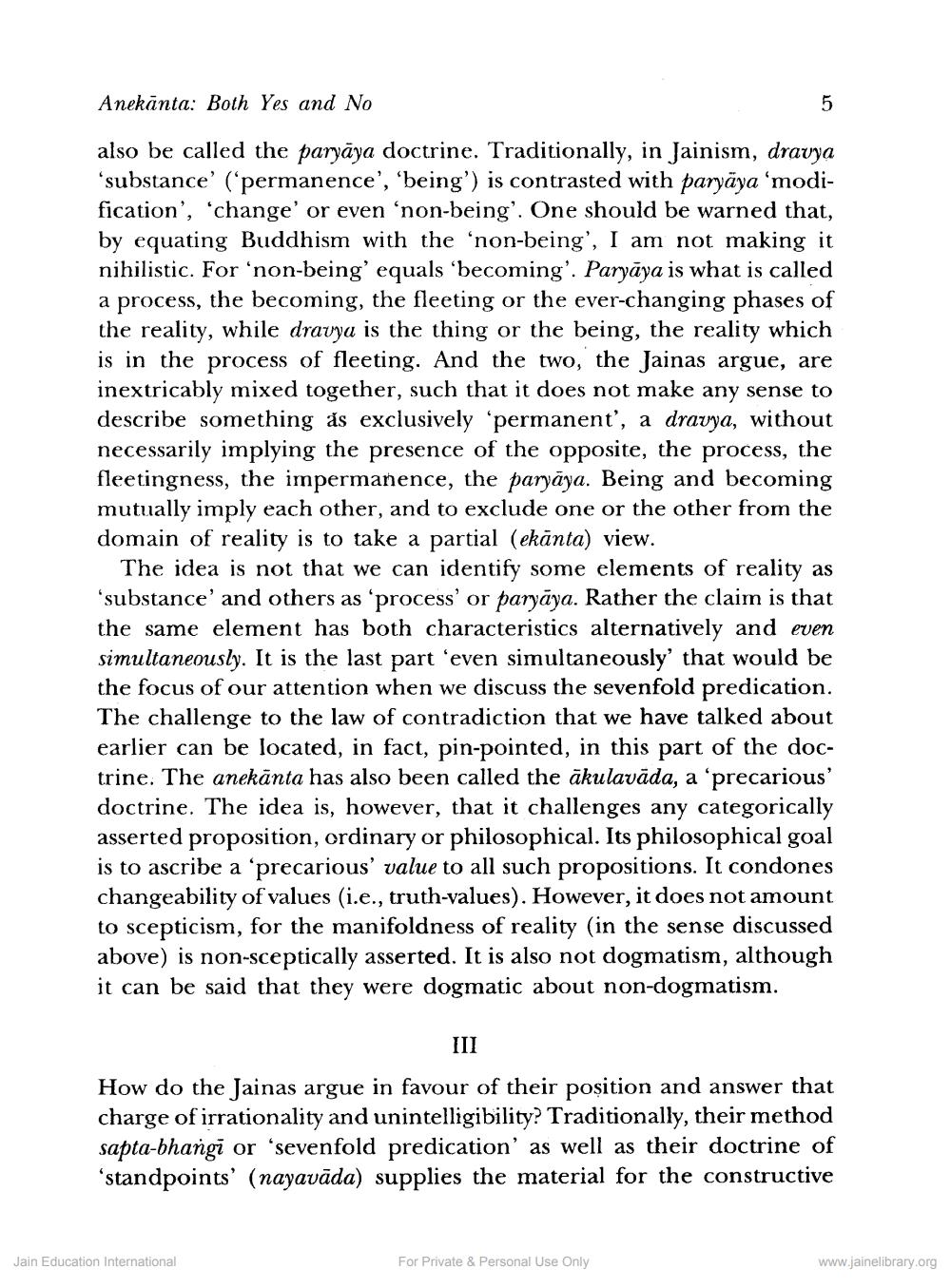________________
Anekānta: Both Yes and No
also be called the paryāya doctrine. Traditionally, in Jainism, dravya 'substance' ('permanence', 'being') is contrasted with paryāya ‘modification', 'change' or even ‘non-being'. One should be warned that, by equating Buddhism with the 'non-being', I am not making it nihilistic. For ‘non-being' equals 'becoming'. Paryāya is what is called a process, the becoming, the fleeting or the ever-changing phases of the reality, while dravya is the thing or the being, the reality which is in the process of fleeting. And the two, the Jainas argue, are inextricably mixed together, such that it does not make any sense to describe something as exclusively 'permanent, a dravya, without necessarily implying the presence of the opposite, the process, the fleetingness, the impermanence, the paryāya. Being and becoming mutually imply each other, and to exclude one or the other from the domain of reality is to take a partial (ekānta) view.
The idea is not that we can identify some elements of reality as substance' and others as 'process' or paryāya. Rather the claim is that the same element has both characteristics alternatively and even simultaneously. It is the last part 'even simultaneously' that would be the focus of our attention when we discuss the sevenfold predication. The challenge to the law of contradiction that we have talked about earlier can be located, in fact, pin-pointed, in this part of the doctrine. The anekānta has also been called the ākulavāda, a 'precarious' doctrine. The idea is, however, that it challenges any categorically asserted proposition, ordinary or philosophical. Its philosophical goal is to ascribe a 'precarious' value to all such propositions. It condones changeability of values (i.e., truth-values). However, it does not amount to scepticism, for the manifoldness of reality (in the sense discussed above) is non-sceptically asserted. It is also not dogmatism, although it can be said that they were dogmatic about non-dogmatism.
III
How do the Jainas argue in favour of their position and answer that charge of irrationality and unintelligibility? Traditionally, their method sapta-bhangi or 'sevenfold predication as well as their doctrine of 'standpoints' (nayavāda) supplies the material for the constructive
Jain Education International
For Private & Personal Use Only
www.jainelibrary.org




